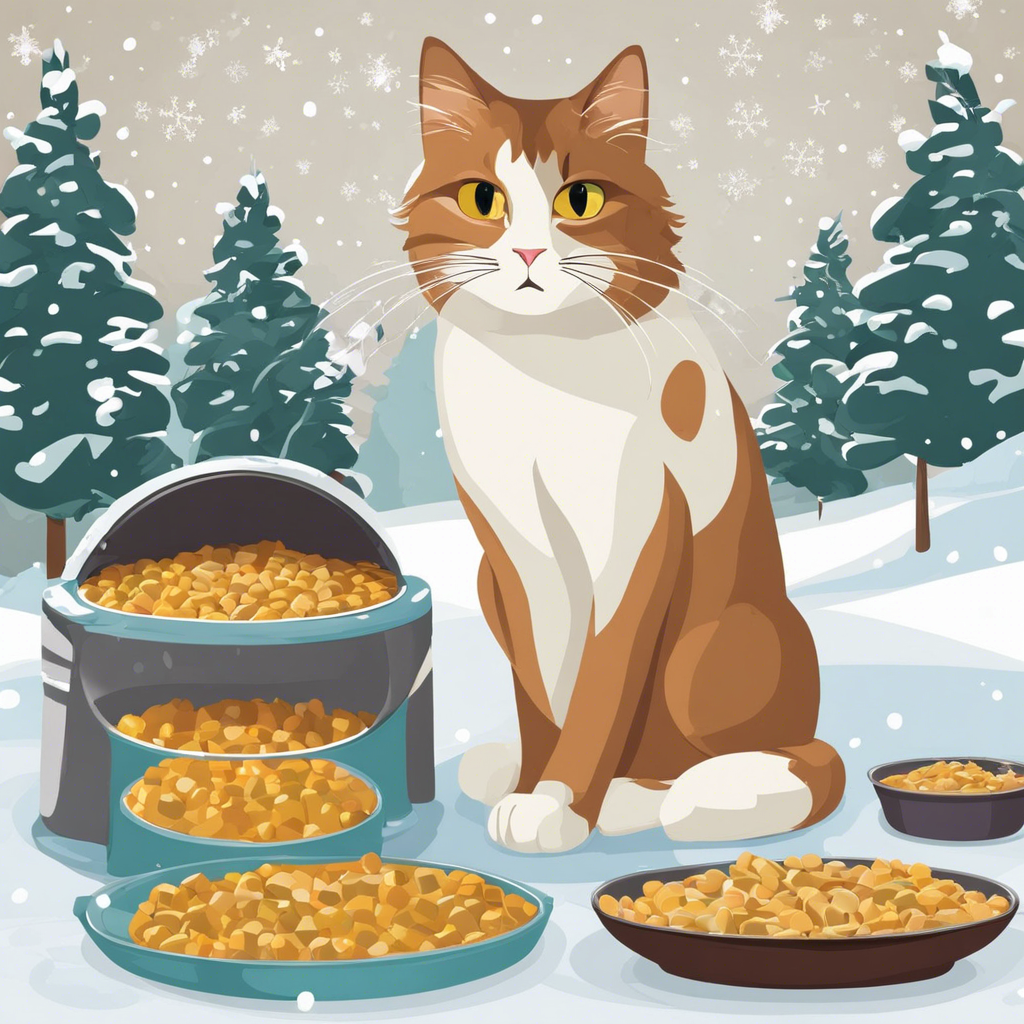As the chilly winter months approach, it’s essential to ensure that our feline friends stay healthy and content. Just like us, cats may have specific nutritional needs during the colder season. So, what are the best types of food to offer your cat during winter? Let’s dive in and explore some options that will keep your furry companion purring with delight.
During winter, your cat might need a little extra nutrition to combat the cold. This doesn’t necessarily mean increasing their food intake but rather focusing on high-quality, nutrient-dense foods. Look for cat food that is rich in protein and essential fatty acids. Protein is vital for maintaining muscle mass, and healthy fats provide an additional energy source to keep your cat warm and active.
# Opt for High-Quality Wet Food
Wet food, often available in cans or pouches, is an excellent choice for providing your cat with the extra nutrition it needs. It typically contains a higher moisture content, which is beneficial for your cat’s overall hydration. Look for recipes with real meat as the primary ingredient, ensuring your cat gets the protein required for optimal health. The soft texture of wet food can also be gentler on your cat’s teeth, especially if they are older or have dental issues.
# Include Protein-Rich Foods
Protein is a crucial component of a cat’s diet, regardless of the season. However, during winter, it becomes even more important. Lean meats, such as chicken, turkey, and fish, are excellent sources of protein. You can also incorporate small amounts of cooked eggs or high-quality meat-based cat treats as occasional snacks. Remember that treats should make up no more than 10% of your cat’s daily calorie intake to maintain a balanced diet.
# Consider Adding Healthy Fats
Essential fatty acids, such as Omega-3 and Omega-6, play a vital role in your cat’s overall health, particularly during winter. These healthy fats help maintain a glossy coat and support joint health, which is crucial for outdoor cats or those more active during the colder months. Consider adding a small amount of fish oil or flaxseed oil to your cat’s food, but always consult your veterinarian first to ensure you’re providing the right supplement and dosage.
# Provide Warm and Comforting Meals
On particularly cold days, warm food can provide both physical and emotional comfort to your cat. Heating your cat’s food slightly above room temperature can make their mealtime more enjoyable. Just ensure the food is not too hot, as you don’t want to risk burning your cat’s mouth. Warming up wet food is easy; simply place the desired portion in a microwave-safe bowl and heat for a few seconds, stirring well before serving.
Caring for your cat’s nutritional needs during winter is essential for their overall well-being. By offering high-quality, protein-rich foods and incorporating healthy fats into their diet, you can ensure your feline friend stays happy and healthy throughout the colder season.

